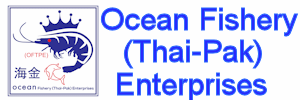The Falkland Islands ( Span. Islas
Malvinas)
A group of islands in the southern Atlantic Ocean east of the
Strait of Magellan. Controlled by Great Britain since the 1830s, the
islands are also claimed by Argentina and were occupied briefly by
Argentinean troops in 1982 before being reoccupied by British
forces.
Commercial Fishing
in the Falkland Islands
Since the late 1980s, however, the rich fishing grounds
surrounding the islands have become the economic mainstay, as a
result of the sale of licenses to foreign commercial fishing
operations.
The government sale
of fishing licenses to foreign countries has brought in more than
£40 million a year in revenues, and local fishing boats are also in
operation. More than 75% of the fish taken are squid, and most
exports are to Spain.
Squid is the most
important catch. Squid fishing vessel (jigger). Squid are caught at
night, attracted by rows of very bright lights, which line each side
of the vessel.
The Falkland Islands
Government spends £6m per annum on fisheries protection and
research. Revenue from the fishery remains the main income source
for the Government (making up 35% of income and circa 60% of GDP).
Falklands waters are
noted for their squid production. Squid usually account for around
75% of annual catches of some 200,000 tonnes, and are destined for
markets in Europe and the Far East. The balance of catches consist
of various finfish species including
Blue Whiting,
Hake,
Hoki and
Toothfish.
Illex argentinus squid are fished principally by specialist
squid jigging vessels from the Far East.
Loligo gahi squid are fished mainly by trawlers registered in
the Falklands and owned jointly by Falklands and European companies.
There are over 20 ocean going fishing vessels registered in Stanley.
Revenue from the sale of fishing licenses has been as high as
£20-25M. More recently revenue has declined to £12-15M per annum as
a result of several very poor Illex seasons. As a consequence the
Illex fishery has been closed early to protect stocks and a
significant proportion of the license fees have been refunded. Squid
stocks can be quite volatile due to their one year life cycle. Some
£5M of fisheries income is spent each year on fisheries protection
and research.
To ensure that conservation targets are achieved, fishing effort is
controlled by limiting the number of vessels licensed to fish within
the zone. Additional restrictions include closed areas and season to
protect spawning squid and, in the case of finfish, a minimum mesh
size is imposed. Catch data is collected from all vessels on a daily
basis.
To protect against poachers, the waters are patrolled by Falkland
Islands Government aircraft and an armed fishery protection vessel.
A major review of fisheries policy concluded with agreement on three
significant policy initiatives, outlined as follows:
1. The development of port infrastructure and services to
enable more fishing vessels to use Stanley as their home port, and
to develop the range of fishing related activities that could be
undertaken ashore, such as services to vessels and storage and
processing of catch;
2. The
development of aquaculture and marine farming, introducing specific
legislation to facilitate and regulate development;
3. The
introduction of a system of transferable rights in the fishery,
which will have similarities with the Individual Transferable Quota
schemes used elsewhere, but continue to be based on fishing effort.
The security and flexibility this will give the industry should lead
to significant development making this probably the most fundamental
change in the fishery since the introduction of the fisheries zone.
The common theme of
all three policy initiatives is to greatly expand the contribution
made by fisheries and maritime businesses to the Falklands economy.
Falkland Islands fisheries law was substantially revised and
re-stated in 2005; this is the first major revision of fisheries law
since the introduction of the Fishing Zone in 1986. The new law
enables and regulates the new system of transferable fishing rights.
It has also provided the opportunity to update fisheries law
incorporating a number of international developments particularly in
relation to the conservation of marine resources.





